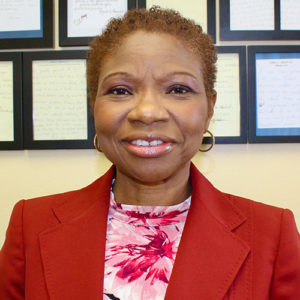Roughly a third of U.S. adults have a will, according to Caring.com’s 2021 wills and estate planning survey. However, just 27.5% of Black Americans have one, which is still an uptick from 25.9% in 2020.
CNBC’s recent article entitled “‘We are in a state of emergency.’ More than 70% of Black Americans don’t have a will. Here’s why a plan is key” explains that Black Americans are missing out on the largest wealth transfer in history. Over the next quarter century, an estimated $68 trillion will be transferred from U.S. households to heirs and charity. Without a proper estate plan in place, probate costs could be 3% to 8% of the value of an estate.
Everyone over the age of 18 should make a plan. There is a misconception that age is a factor, that you’re supposed to be old to do estate planning, or that you’re supposed to be wealthy to do estate planning. That is just wrong. Find a culturally competent attorney to help you, one that understands the specific issues facing Black Americans.
In addition to a will, ask an experienced estate planning attorney about these documents:
- A durable power of attorney, which sets out who can make financial decisions for you, if you are incapacitated.
- A health-care power of attorney names a person to handle your medical decisions, if you become incapacitated and cannot make them for yourself.
- A living will or advanced directive is a document that details your wishes for medical treatment you would or would not want to use to keep you alive, such as CPR and intubation.
Remember that a last will states to whom you wish to give your assets after you die. It also lets you name a guardian for any minor children you may have.
Review your estate plan as life circumstances change, like a new child or grandchild, a marriage or divorce, or a change in financial circumstances.
In addition, ask an experienced estate planning attorney about trusts, which hold assets on behalf of your beneficiaries instead of those assets going directly to them. Trusts should be considered for those with higher asset levels, blended families and those with a complicated financial situation.
For most people, a will is not enough. A trust creates a secure place for your assets for the people you left behind, the beneficiaries, with instructions.
It is important to take action in creating a plan, which can help create generational wealth.
Reference: CNBC (Feb. 7, 2022) “‘We are in a state of emergency.’ More than 70% of Black Americans don’t have a will. Here’s why a plan is key”
Suggested Key Terms: Estate Planning Lawyer, Wills, Intestacy, Probate Court, Inheritance, Asset Protection, Capacity, Guardianship, Executor, Personal Representative, Trusts, Trustee, Revocable Living Trust, Power of Attorney, Healthcare Directive, Living Will, Probate Attorney, Blended Family








